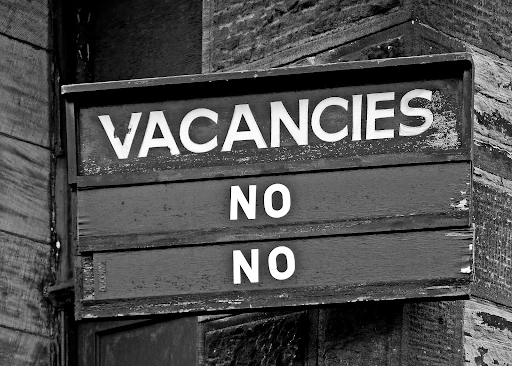The State Department is not exactly known for its jocularity but once in a while, it can have its fair share of pranks. When April Fool’s Day rolls around, local officials may pull pranks on Foreign Service Officers, who in turn have occasionally played jokes on their fellow officers and superiors (which does not always go over so well). The Foreign Service’s “post preference sheets,” indicating where FSOs would like to be posted in their next assignment, also used to be due on April 1st and came to be referred to as the April Fools Sheet (prompting some wry remarks by FSOs on it representing the likelihood of getting your preferences).
Peter Galbraith, who at the time was a professional staff member for the U.S. Senate Committee on Foreign Relations, traveled to Kuwait, northern Iraq and later Syria in March-April of 1991 to conduct a study for the Committee on the situation in the area after the Gulf War. He was interviewed by Charles Stuart Kennedy in November 1999. Allen Davis describes his experience at an airport in Ouagadougou; he was interviewed by Peter Moffat in June 1998.
Robert Dillon, interviewed by Charles Stuart Kennedy beginning in May 1990, was a consular officer posted in Venezuela in 1957. Smith Simpson, a political officer in Bombay in 1955, relates how some pranks do indeed go unpunished. He was interviewed by Charles Stuart Kennedy in May 1991. Finally, the last except Theodore Russell, who was working at the Operations Center at the State Department in the 1960s, shows that some people just do not appreciate a good joke. He was interviewed by Charles Stuart Kennedy beginning in February 2000.
No Room at the Inn
Peter Galbraith
Palmyra, Syria
GALBRAITH: I made my way back to the PUK [Patriotic Union of Kurdistan, Iraqi political party] headquarters. They proposed that I spend the night and fly to Damascus the next morning. I decided that I didn’t want to do that. I just wanted to get back to Damascus as quickly as possible. They got me a taxi that drove across Syria to Palmyra [city in Syria] to spend the night.

I then got on the radio to the American Embassy and they were going to send a car to Palmyra to pick me up. They made a reservation at a hotel there. This was one of the more surreal experiences of my life. I arrived in Palmyra at 4:00 in the morning at this tourist hotel. I walked in and there was this rotund Syrian behind the desk with a red fez on his head.
I say, “The name’s Galbraith. I have a reservation made by the American Embassy.” He looks at me and he says, “Sorry, sir, but we’re full.” I said, “Well, I have a reservation. It was made by the American Embassy. They said it was fine.” “Well, I’m sorry sir, I just can’t help you. We’re full.” I said, “What do you mean you’re full? I’m dead tired. I’ve driven all night. I need a room.” “Sorry, sir, we’re full.”
Then I looked behind him and there were the boxes with the keys and there was a key in every single box. So, I knew that there was almost no tourism because tourists had all canceled because of the war.
I said, “What do you mean you’re full? There are keys in every single box there.”
He looked at me and he said, “Sir, do you know what day it is?”
I said, “What do you mean what day it is? I just want a room.”
He said, “It’s April 1st. April Fool’s Day.” I was the only guest in the hotel.
“In our country, we don’t do this kind of thing”
Allen Davis
Ouagadougou, Upper Volta (now known as Burkina Faso)
DAVIS: I guess one of the most delightful things that happened and which kind of throws some light on the mentality of the wonderful Voltans: there was only one radio station and no television at the time being run by the government in Upper Volta. And to kind of show you how the newly independent Africans sometimes found humor in really quite official circumstances and events.
My Ambassador was away. He was traveling in the Southern part of the country and I was in charge of the embassy – I think it was the only time I was in charge of an embassy. In the morning newscast, the radio announcer said that at ten o’clock all members of the diplomatic corps – I think there were a total of five of us, maybe six – were asked to be at the airport at ten o’clock for a visit de scale, a kind of technical stop by Sekou Toure, the president of Guinea.
I hadn’t really focused that intently on what the day was or what the date was, but I quickly finished shaving. And not being able to wait for the driver to pick me up, I actually drove the official car to the airport to make sure I was there to represent the United States when Sekou Toure got off the airplane.
But as I arrived, there was a little clutch of people out in front of the airport. But there was nowhere near the contingent of police standing at every corner and making a big fuss. The Soviet ambassador, with a really perplexed look, came over to the car and said “What’s going on?”
With him was the man who was later the foreign minister of Upper Volta after the government changed. He said “You know what day it is?” and I said “No.”
He said “It’s the first of April.”
So then the Soviet ambassador, with this strange look, said in Russian, “Chto eto?” [What’s that?] and I said, “Well, I don’t think you have this in the Soviet Union, but in the United States we have April’s Fool’s jokes and the French expression is Poisson d’Avril.
He said “Well, what does it mean?”
And so I said, in a few words, what April’s Fool’s jokes are.
He said in Russian, “In our country, we don’t do this kind of thing.”
I said, “Yes, Mr. Ambassador, we know. I’ve been in your country and it’s true, you don’t, but it’s something that some other people have a lot of fun doing.”
Later on, I talked with the Minister of Information, and it was obvious that he was the guilty one. He had actually set this up. For me, it was a marvelous commentary on what it was like to work in Africa at the time. The very thought of having such an announcement go out in Washington and having the gridlock and the confusion and all the rest! In Africa this could happen, and it was a little inconvenience, but the inconvenience was immensely outweighed by the fun and lightness that had gone into it, the good humor.
Psych!
Robert Dillon
Caracas, Venezuela
DILLON: On April 1, 1957, I was handed a telegram announcing that I was being transferred directly to Khorramshar [at that time, a consulate in Iran]. I was delighted.
It turned out to be a joke — an April Fool’s day joke. The Consul was astounded by my obvious pleasure at the alleged new assignment.
This episode certainly did not contribute to reducing tensions at the Consulate. But it did give me hope that such miracles can happen.
Joke’s on you – Or is it?
Smith Simpson
Bombay, India

SIMPSON: I was in my office, looking out the windows over the harbor and admiring the sparkle of the monsoon on the ship masts, when in comes our administrative officer with a little smile on his face and a piece of paper in his hands.
He said, “I have news for you.” So he handed me this paper which purported to be a cable from the Department transferring me to Lourenço Marques [capital of Mozambique, now known as Maputo] as Consul General.
I responded, “Ha, ha, big joke” and tried to give it back to him, because I thought he was reciprocating a hoax I had played on him.
I had heard him say on one occasion that if there was one place in the world he didn’t want to serve in, it was Reykjavík [capital city of Iceland]. Come April Fool’s Day 1954, I had faked a telegram assigning him to Reykjavík. If I had had any thought of the traumatic effect it would have on him, I wouldn’t have done it, because he was quite desolate, to put it mildly.
So I felt this was just a quid pro quo. But he said, “No, no, no, no, it’s authentic.”
So I said, “Well, you’ll have to prove that to Bill Turner [Consul General of the Bombay embassy].” We went in to Bill Turner, who had taken over, and the administrative officer persuaded Bill it was indeed authentic.
The Secretary is not amused
Theodore Russell
Operations Center, State Department
RUSSELL: Then my third job was as the junior editor in the Ops Center. It involved one week on the day shift, one week nights, a horrible schedule, but working with a great guy, Gary Matthews for part of the time. He was senior editor. We would have to read all the traffic coming in and then do the Top Secret Summary for the front office and the White House. We were writing stuff that the Secretary would see and the President would likely get, so it should be as up-to-date as possible.
But, they assigned us a low-level clerk typist to produce this. This was before the computer, and he couldn’t type. So we found that we would have to proofread it repeatedly.
For example, there would be two page 3s. We sometimes missed that kind of thing. We found we had to put the TS [Top Secret] Summary to bed an extra 15 minutes early, thereby missing possibly some important development just because the Department couldn’t give us someone who could type. Nothing really changes.
But that was a great job and working with Gary was a particular pleasure. We just had a good time. We had a booby board for the worst cables, when people would send in something either that was particularly pompous or particularly useless.
We did an April Fool’s version of the morning summary once. That was probably a mistake because we did a take-off on Rolling Thunder [the Vietnam bombing campaign], something about having killed two water buffalo in a big raid.
We got a note back from the Secretary saying,”This is not a subject for levity.”

You should try to get a copy of one of Embassy Moscow’s April Fools day cables from the 1980’s in which they created a fictional account of the latest bizarro happenings in Moscow. Sometimes it was hard to tell the fiction from the reality :)
That’s a good idea. Any idea of how we’d do that? I can’t imagine we’d need a FOIA request (then again…)